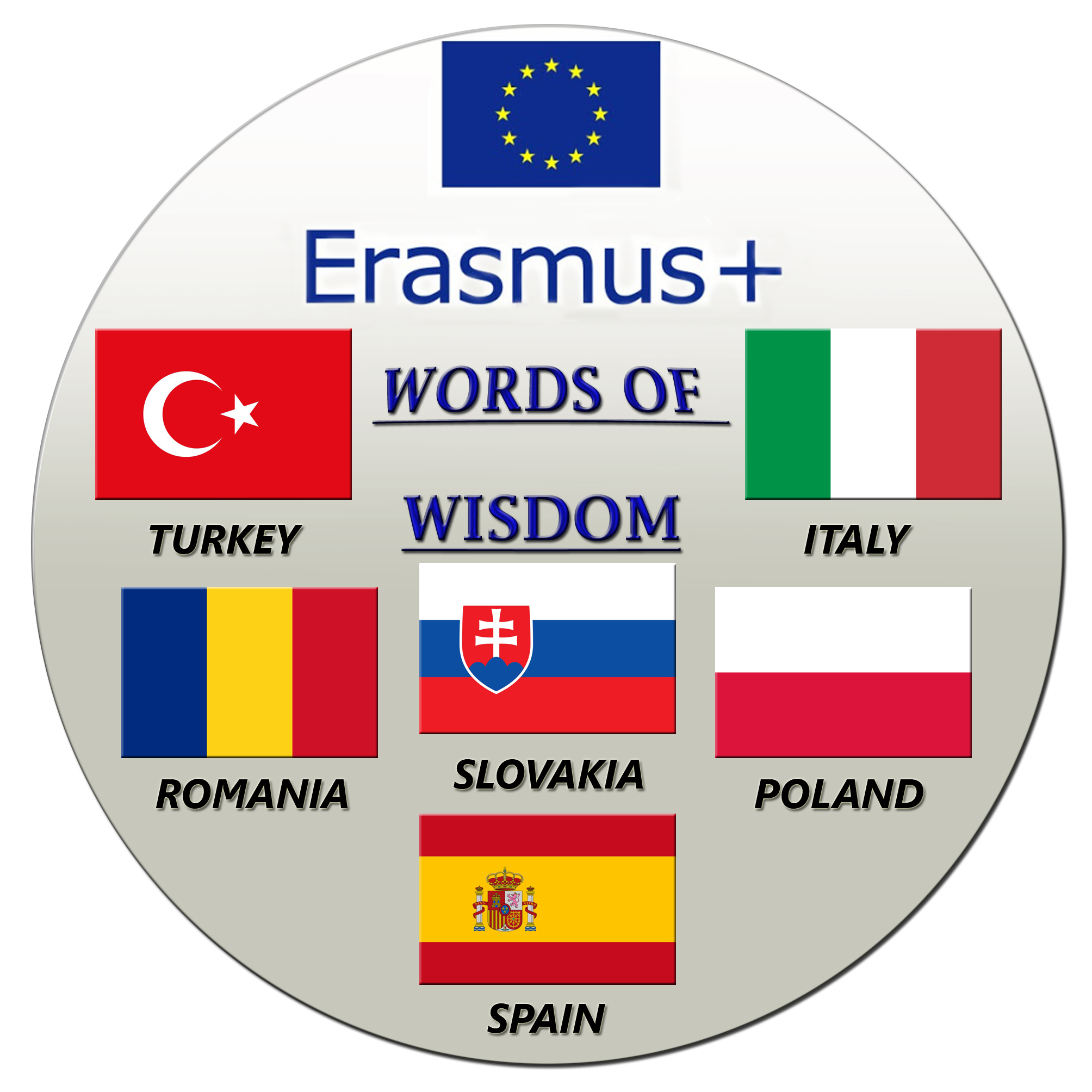OUR PROJECT
The main aim of this project is to improve the educational process by the impementation of the cooperative learning that will support the cooperation of pupils with different educational needs. On the other hand, the level of knowledge and interest in language teaching will increase and it will be done through the transfer of the cultural heritages in our languages to young generations. In this project we want to provide continuation of proverbial and idiomatic richness in the languages, to help students realize the common elements of our languages and to promote widely use of proverbs and idioms in classes, to help students to improve their study, linguistic, social and artistic skills.
By studying proverbs and idioms in the languages students will be able to identify their cultures characteristics in other European languages.
In this way the sense of multiculturalism, international cooperation, tolerance and acceptance of differentiation will be enforced having as an overall objective the realization that European people share not only a continent but also a common culture. This project foresees a number of groups participating throughout the life of the project. We have planned for 3 Short-term joint staff training events. The goal of the first meeting at the beginning of the project is to develop a share understanding of roles and responsibilities and to plan for the project mobilities, identify key delivery points, activity plans, materials, the second staff meeting will analyze the achievement of ongoing project tasks and one meeting at the end of the project to evaluate the project outcomes and to finalise the project results.
We plan to involve 6 pupils and 3 staff from each partner during the 3 pupils’ exchange. The age of the pupils is 11-18. Our pupils will perform their project results in each exchange. At the same time, students will learn each other, support and improve themselves and exchange their experiences.
The project, which is characterized by its strong ties with the local people, will allow schools to be no-longer self-referential structures but open spaces to the external culture, developing reciprocal links and acting as active points of reference for the vitality of the area. Many people could benefit from this project. As we have already explained, many benefits will achieve, not only for our school communities, but for the local communities in the participating project countries, too.
We are planning to encourage and promote the students to explore and observe the local community in which they live. Our teenagers need to be encouraged to search for local usage of spoken language and to talk to people in the local community. So our idea is to explore and discover the hidden treasure in terms of proverbs and idioms in informal spoken language by giving pupils the opportunity to be journalists or interviewers for a certain time or to speak to people in local informal languages as they themselves observe and experience in daily life. The community itself will provide a great deal of help to the students to digest the proverbial / idiomatic language.
The partner schools intend to build: cultural bridges (to link different cultures in terms of languages, traditions, literature, music, dance, history), educational bridges (to link various systems of education, innovating the teaching techniques and methods), temporal bridges (to connect the past, the present and the future) interpersonal bridges (to make new friends).

The project will produce a number of outcomes:
Short-term joint staff training events (Slovakia, Spain and Romania)
Short terms exchange of pupils (Italy, Poland, Turkey) in which the pupils will work together on common proverbs and idioms with their stories and meanings in English, communication skills, problem solving, team work, critical thinking and more (they will discover the proverbs) and the idioms, the stories in the background, prepare sketches and plays, sing songs, draw pictures, make animations, prepare competitions.
Pupils training peers upon their return to their School.
E-twinning collaboration.
E-book with short videos filmed from the real cooperative learning lessons.
A compilation of pupils work and implementation of the Project.
Guidance on replicating the project upon completion of it.
Newsletters and flyers.
The special events with the local folklore/ballad singers can be a great opportunity for the students and the community in terms of proverbial/idiomatic language.
The local town municipalities will be another stakeholder. They will help the students about the special places/corners in the towns where the cultural background of the proverbs or idioms can be traced.
The project objectives and its results fit in well with the priorities selected as the project will impact directly on skills and competences of its participants (staff and learners) and it focuses on promoting a comprehensive approach to language teaching and learning 2021 Cooperative and Integrated Learning through Words of Wisdom.





